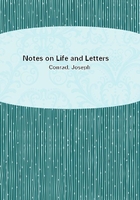
第29章
A couple of years ago I was moved to write a one-act play--and Ilived long enough to accomplish the task. We live and learn. When the play was finished I was informed that it had to be licensed for performance. Thus I learned of the existence of the Censor of Plays. I may say without vanity that I am intelligent enough to have been astonished by that piece of information: for facts must stand in some relation to time and space, and I was aware of being in England--in the twentieth-century England. The fact did not fit the date and the place. That was my first thought. It was, in short, an improper fact. I beg you to believe that I am writing in all seriousness and am weighing my words scrupulously.
Therefore I don't say inappropriate. I say improper--that is:
something to be ashamed of. And at first this impression was confirmed by the obscurity in which the figure embodying this after all considerable fact had its being. The Censor of Plays! His name was not in the mouths of all men. Far from it. He seemed stealthy and remote. There was about that figure the scent of the far East, like the peculiar atmosphere of a Mandarin's back yard, and the mustiness of the Middle Ages, that epoch when mankind tried to stand still in a monstrous illusion of final certitude attained in morals, intellect and conscience.
It was a disagreeable impression. But I reflected that probably the censorship of plays was an inactive monstrosity; not exactly a survival, since it seemed obviously at variance with the genius of the people, but an heirloom of past ages, a bizarre and imported curiosity preserved because of that weakness one has for one's old possessions apart from any intrinsic value; one more object of exotic VIRTU, an Oriental POTICHE, a MAGOT CHINOIS conceived by a childish and extravagant imagination, but allowed to stand in stolid impotence in the twilight of the upper shelf.
Thus I quieted my uneasy mind. Its uneasiness had nothing to do with the fate of my one-act play. The play was duly produced, and an exceptionally intelligent audience stared it coldly off the boards. It ceased to exist. It was a fair and open execution.
But having survived the freezing atmosphere of that auditorium Icontinued to exist, labouring under no sense of wrong. I was not pleased, but I was content. I was content to accept the verdict of a free and independent public, judging after its conscience the work of its free, independent and conscientious servant--the artist.
Only thus can the dignity of artistic servitude be preserved--not to speak of the bare existence of the artist and the self-respect of the man. I shall say nothing of the self-respect of the public.
To the self-respect of the public the present appeal against the censorship is being made and I join in it with all my heart.
For I have lived long enough to learn that the monstrous and outlandish figure, the MAGOT CHINOIS whom I believed to be but a memorial of our forefathers' mental aberration, that grotesque POTICHE, works! The absurd and hollow creature of clay seems to be alive with a sort of (surely) unconscious life worthy of its traditions. It heaves its stomach, it rolls its eyes, it brandishes a monstrous arm: and with the censorship, like a Bravo of old Venice with a more carnal weapon, stabs its victim from behind in the twilight of its upper shelf. Less picturesque than the Venetian in cloak and mask, less estimable, too, in this, that the assassin plied his moral trade at his own risk deriving no countenance from the powers of the Republic, it stands more malevolent, inasmuch that the Bravo striking in the dusk killed but the body, whereas the grotesque thing nodding its mandarin head may in its absurd unconsciousness strike down at any time the spirit of an honest, of an artistic, perhaps of a sublime creation.
This Chinese monstrosity, disguised in the trousers of the Western Barbarian and provided by the State with the immortal Mr.